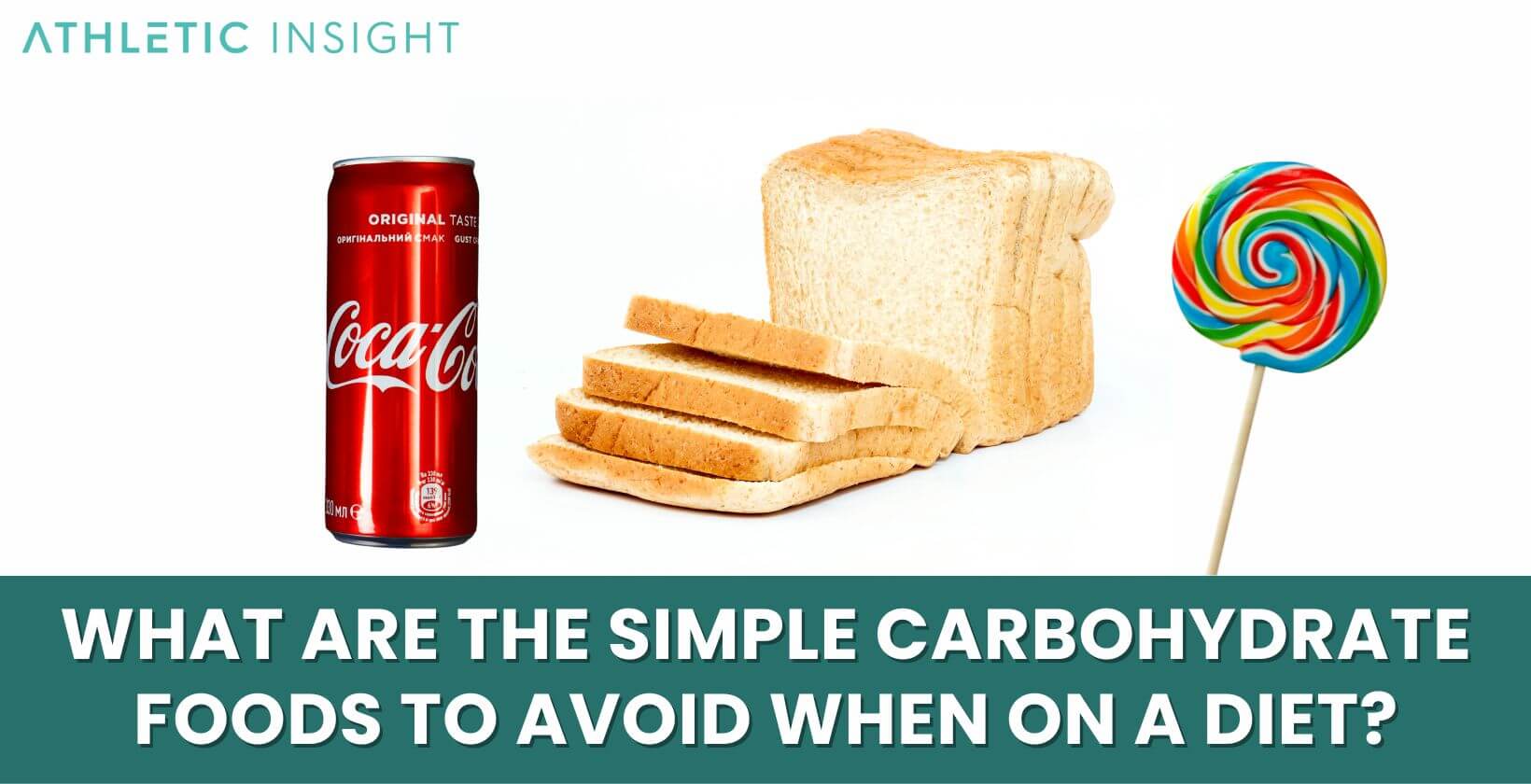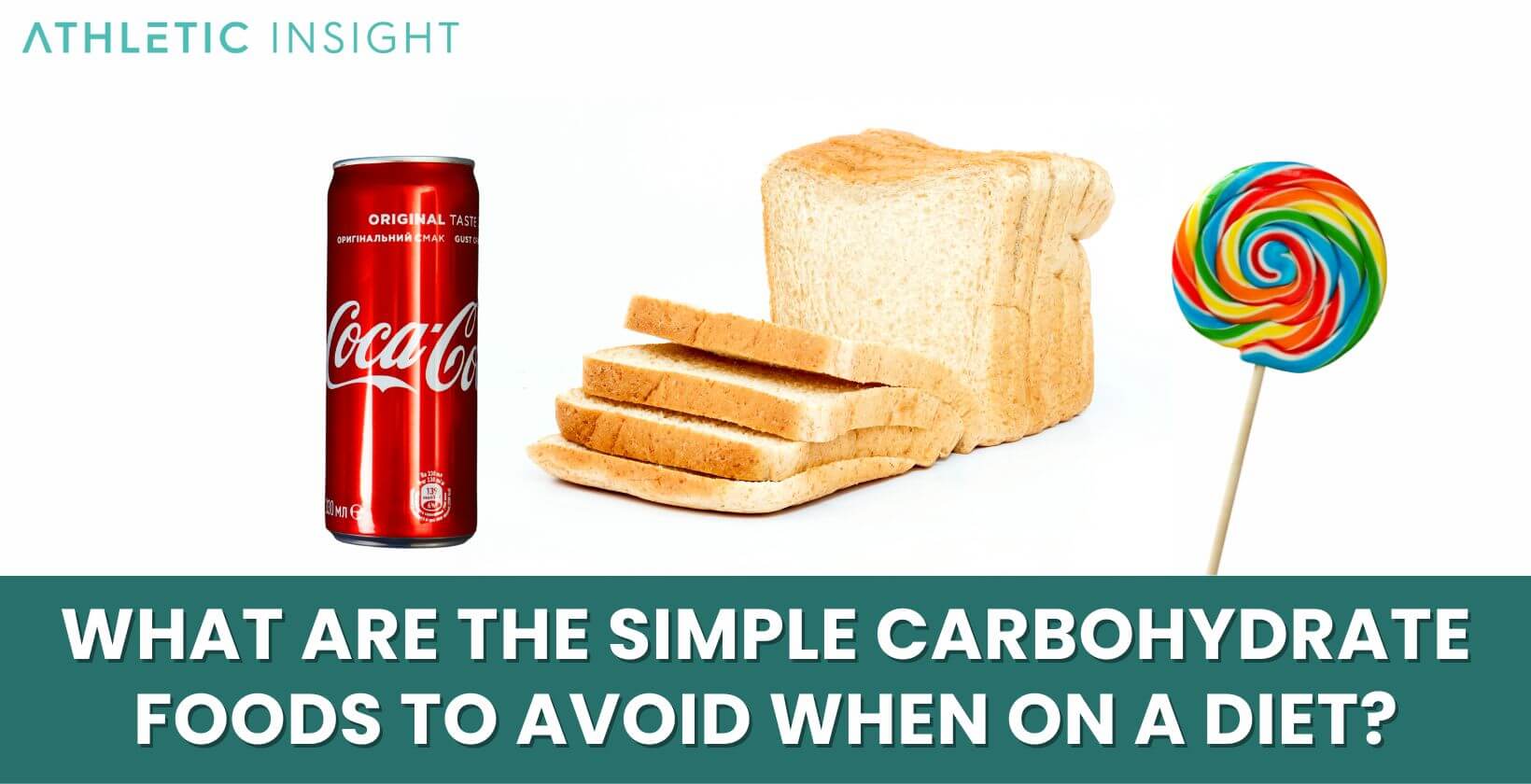Within the diverse world of nutrition, simple carbohydrates hold a significant yet often controversial position. This introduction aims to unravel the intricacies of simple carbohydrates, examining their fundamental nature, varied applications, and the array of benefits they offer.
Often simplified as mere sugars, simple carbohydrates’ role in diet and health is multifaceted, encompassing quick energy sources and essential nutritional components. In this comprehensive examination, we will explore the essence of simple carbohydrates, their distinct uses, and the advantages they present in a balanced diet.
What are Simple Carbohydrates?
Simple carbohydrates, often termed as simple sugars, are fundamental energy sources easily metabolized by the body. They consist of basic sugar units that provide rapid energy upon consumption.

Found naturally in foods like fruits, vegetables, and dairy products, they are also prevalent in processed forms such as table sugar and syrups. Recognized for their sweet taste, simple carbohydrates are distinguished by their quick absorption into the bloodstream, facilitating an immediate boost in energy levels.
What are Simple Carbohydrates Composed Of?
Simple carbohydrates are fundamentally composed of one or two sugar molecules, making them easily digestible. Monosaccharides, such as glucose, fructose, and galactose, represent the simplest form of carbohydrates. Disaccharides like sucrose (table sugar), lactose (found in dairy), and maltose (in grains) are formed by the union of two monosaccharides. These basic structures enable the swift release of energy, characterizing the simple carbohydrates’ rapid absorption into the bloodstream.
How are Simple Carbohydrates Broken Down?
The digestion of simple carbohydrates begins in the mouth and continues in the small intestine, where they are quickly broken down into glucose. This rapid conversion, facilitated by their simple molecular structure, leads to an immediate rise in blood glucose levels. This process is crucial for providing instant energy, particularly beneficial during high-intensity activities or for quick energy replenishment.
What Nutrients are in Simple Carbohydrates?
While simple carbohydrates are primarily a source of quick energy, their nutritional value varies based on the food source. Natural sources like fruits and dairy provide essential nutrients including vitamins, minerals, and sometimes fiber, alongside simple sugars. In contrast, processed simple carbohydrates, such as those in candy and soda, lack these additional nutrients and are often referred to as ’empty calories.’
Are Simple Carbohydrates Bad?
No, simple carbohydrates are not inherently bad. Their impact on health depends significantly on the consumption context and food source. Naturally occurring simple carbs in fruits and dairy are beneficial, providing essential nutrients along with energy. However, excessive intake of processed simple sugars can lead to health issues like weight gain and unstable blood sugar levels.
How are Simple Carbohydrates Used in Weight Loss?
When it comes to weight loss, the role of simple carbohydrates is complex. While overconsumption, especially of refined sugars, can impede weight loss efforts, judicious use can provide necessary energy for workouts. Consuming simple carbohydrates, particularly from natural sources like fruits, can offer quick energy boosts and help manage cravings in a calorie-controlled diet.
What Type of Diet Avoids Simple Carbohydrates?
Diets that aim to limit simple carbohydrate intake typically focus on reducing or eliminating added sugars and highly processed foods. Low-carbohydrate and ketogenic diets, for instance, restrict simple carbs to lower overall carbohydrate intake, favoring proteins and fats as primary energy sources. These types of diets are often chosen for weight management and to control blood sugar levels.
What are the Simple Carbohydrate Foods to Avoid When on a Diet?
For those limiting simple carbohydrates in their diet, it’s advisable to avoid or reduce intake of foods high in added sugars. This includes sugary beverages, candies, pastries, and other processed foods with high sugar content. These foods can contribute to calorie surplus and blood sugar spikes, offering little nutritional benefit.
- White Bread
- Sugary Drinks
- Sugary Cereals
- Candy and Sweets

1. White Bread
White bread, a common simple carbohydrate, is made from refined flour and often lacks the fiber and nutrients present in whole grain bread. It can contribute to rapid spikes in blood sugar, making it less suitable for weight management and overall health.
2. Sugary Drinks
Sugary drinks, including sodas and sweetened juices, are major sources of added sugars and calories. Regular consumption is linked to various health issues, including obesity and metabolic disorders, making them unsuitable for a health-conscious diet.
3. Sugary Cereals
Many breakfast cereals, despite their health-oriented marketing, are laden with added sugars. These cereals can cause rapid increases in blood sugar and are often low in essential nutrients, making them less desirable for a balanced diet.
4. Candy and Sweets
Candy and other sweets are high in added sugars and often lack nutritional value. They are calorie-dense and can contribute to unhealthy weight gain and dental issues when consumed in excess.
What are the Healthy Simple Carbohydrates?
Healthy simple carbohydrates are predominantly found in natural, unprocessed foods. Fruits are a prime example, providing fructose along with essential nutrients like vitamins, fiber, and antioxidants. Dairy products, such as milk and yogurt, contain lactose, a natural simple sugar, and offer additional nutritional benefits like protein and calcium. These simple carbohydrates, in their natural form, are integral to a well-rounded diet, offering quick energy as well as vital nutrients.
- Fruit
- Vegetables
- Whole Grains
- Legumes

1. Fruit
Fruits are a nutritious source of natural simple sugars, packed with a variety of vitamins, minerals, and dietary fiber. For example, oranges provide vitamin C and potassium alongside natural sugars, while berries offer antioxidants and fiber, making them an excellent choice for a quick, nutrient-rich energy boost.
2. Vegetables
Certain vegetables, particularly those in the root family like carrots and beets, contain natural simple sugars. These vegetables are not only sources of carbohydrates but also provide dietary fiber, vitamins, and minerals, contributing to a balanced diet and overall health.
3. Whole Grains
Though primarily known for complex carbohydrates, whole grains like quinoa and oats also contain simple sugars. These grains offer a unique combination of carbohydrates, along with fiber, protein, and essential nutrients, making them a healthy and versatile dietary option.
4. Legumes
Legumes such as beans, lentils, and chickpeas, though rich in complex carbohydrates, also contain simple carbohydrates. They are a powerhouse of nutrition, providing protein, fiber, vitamins, and minerals, supporting overall health and well-being.
What is the Suggested Daily Intake of Simple Carbohydrates?
The recommended daily intake of simple carbohydrates varies depending on individual dietary needs and health goals. General guidelines suggest that added sugars should constitute less than 10% of total daily caloric intake. Prioritizing natural sources of simple carbohydrates and maintaining a balanced intake of nutrients is essential for optimal health.
Do Simple Carbohydrates Cause Weight Gain?
Yes, excessive consumption of simple carbohydrates, particularly processed ones with high added sugar content, can contribute to weight gain. These foods often lead to overconsumption of calories and can disrupt blood sugar regulation, leading to increased fat storage, particularly if not balanced with physical activity.
What are the Benefits of Simple Carbohydrates?
Simple carbohydrates offer several benefits when consumed as part of a balanced diet. They provide a quick and accessible energy source, crucial for brain function and physical activities. Natural simple carbohydrates, such as those in fruits and dairy, also supply essential nutrients and can support digestive health through their fiber content.
Are there any Side Effects from Simple Carbohydrates?
Yes, excessive intake of simple carbohydrates, especially processed sugars, can lead to several health issues. These include rapid blood sugar fluctuations, weight gain, and an increased risk of chronic diseases such as diabetes and heart disease. Consuming simple carbohydrates in moderation and choosing healthier sources are key to mitigating these risks.
What is the Difference Between Simple Carbohydrates and Complex Carbohydrates?
Simple and complex carbohydrates differ in their molecular structure and the rate at which the body digests and absorbs them. Simple carbohydrates, made up of one or two sugar molecules, are quickly absorbed, providing immediate energy. Complex carbohydrates, consisting of longer chains of sugar molecules, are digested more slowly, offering sustained energy release. Foods rich in complex carbohydrates, like whole grains and starchy vegetables, are generally higher in fiber and other nutrients compared to simple carbohydrates.



